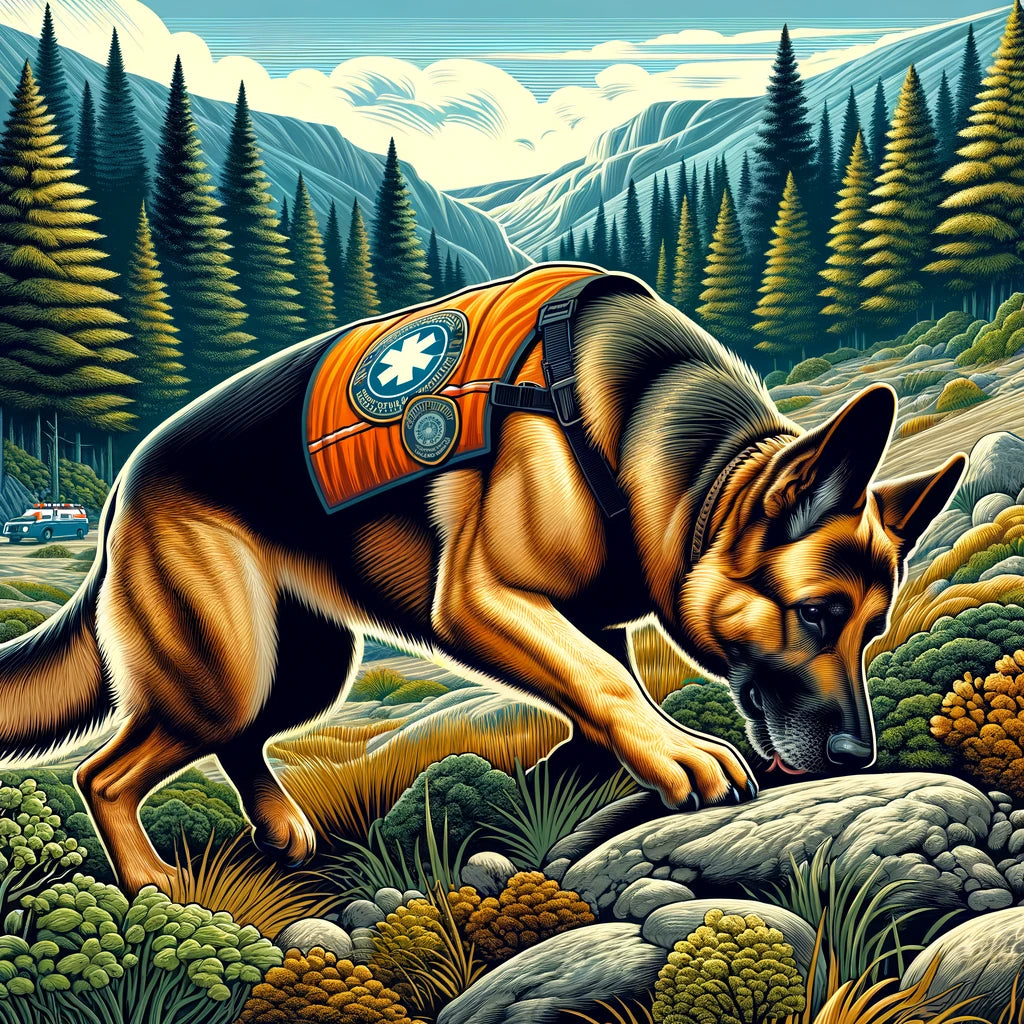
Working Dogs for Sale: Your Ultimate Guide
Share
Working dogs are not just pets—they're partners in various tasks, from herding livestock to providing security and assistance. If you’re in the market for a working dog or simply want to learn more about these incredible animals, this guide is here to help. We’ll cover everything you need to know about working dogs, including types, training, where to buy them, and FAQs to address your pressing questions.
What Are Working Dogs?
Working dogs are specially trained canines bred and raised to perform specific tasks. Unlike typical pets, these dogs are valued for their physical abilities, intelligence, and trainability. They have been assisting humans for centuries in areas like farming, law enforcement, and search-and-rescue missions.
Types of Working Dogs
Working dogs come in various breeds, each suited to specific roles. Here’s a breakdown of the most common types:
1. Herding Dogs
- Purpose: Herd and protect livestock.
- Breeds: Border Collies, Australian Shepherds, and Cattle Dogs.
- Skills: Quick reflexes, high energy, and excellent obedience.
2. Guard Dogs
- Purpose: Provide security and protection.
- Breeds: German Shepherds, Doberman Pinschers, and Rottweilers.
- Skills: Alertness, loyalty, and a strong protective instinct.
3. Service Dogs
- Purpose: Assist individuals with disabilities.
- Breeds: Labradors, Golden Retrievers, and Poodles.
- Skills: Guide the visually impaired, alert for seizures, and provide emotional support.
4. Search-and-Rescue Dogs
- Purpose: Locate missing persons in disaster zones or wilderness areas.
- Breeds: Bloodhounds, Belgian Malinois, and German Shepherds.
- Skills: Acute sense of smell, agility, and determination.
5. Detection Dogs
- Purpose: Detect drugs, explosives, or contraband.
- Breeds: Beagles, Spaniels, and Labradors.
- Skills: Sharp noses and consistent focus.
Why Are Working Dogs Valuable?
Working dogs are more than just companions; they play critical roles in their fields. Here’s why they stand out:
- Specialized Training: These dogs undergo extensive training tailored to their tasks, making them reliable and skilled.
- Loyal Partners: They develop a deep bond with their handlers, ensuring mutual trust and understanding.
- Problem Solvers: Whether it’s rounding up sheep or detecting illegal substances, working dogs solve problems humans can’t handle alone.
Training Working Dogs
Proper training is essential for working dogs to excel. The process begins early and varies depending on the dog's role.
Key Aspects of Training:
- Basic Obedience: Sit, stay, and recall commands are foundational.
- Task-Specific Training: Activities like herding, retrieving, or sniffing are taught gradually.
- Socialization: Exposure to various environments and people ensures confidence and adaptability.
- Continuous Reinforcement: Positive reinforcement keeps the dog motivated and focused.
Where to Find Working Dogs for Sale
Finding a well-trained working dog requires research and patience. Here are your top options:
1. Reputable Breeders
- Pros: Specialized knowledge, health guarantees, and early training.
- Cons: Higher cost and limited availability.
2. Rescue Organizations
- Pros: More affordable and ethical option.
- Cons: May require additional training.
3. Working Dog Training Centers
- Pros: Fully trained dogs ready for specific roles.
- Cons: High upfront costs.
4. Online Marketplaces
- Pros: Easy access to listings.
- Cons: Risk of scams and unethical sellers.
Tips for Buying a Working Dog
When purchasing a working dog, consider these tips to make the best decision:
- Understand Your Needs: Identify the tasks you need the dog to perform.
- Research Breeds: Choose a breed suited to your requirements.
- Check Credentials: Ensure the breeder or seller has proper certifications.
- Meet the Dog: Spend time with the dog to gauge its temperament and training level.
- Ask for Records: Request health and vaccination records to confirm the dog’s condition.
Caring for Working Dogs
Owning a working dog requires commitment. Here’s how to ensure your furry partner stays healthy and happy:
1. Regular Exercise
- Working dogs are highly energetic and need daily physical activity to stay fit.
2. Proper Diet
- A balanced diet rich in protein and nutrients supports their demanding lifestyle.
3. Routine Vet Visits
- Regular check-ups prevent health issues and keep vaccinations up to date.
4. Mental Stimulation
- Engage your dog with puzzles, training sessions, or new tasks to keep its mind sharp.
Common Challenges with Working Dogs
While working dogs are remarkable, they come with challenges:
- High Energy Levels: They need ample exercise and stimulation.
- Specialized Training Needs: Continuous training and practice are necessary.
- Cost: Purchasing and maintaining a working dog can be expensive.
- Compatibility: Not all breeds or individuals are suited to every task or owner.
Conclusion
Working dogs are invaluable assets, offering skills and companionship in various fields. Whether you're considering buying one or learning more about their roles, this guide has provided actionable insights to help you make informed decisions. If you’re ready to find your ideal working dog or need assistance with branding, Business Club is here to support your journey!
FAQs
1. What is a working dog?
A working dog is a specially trained canine bred to perform tasks such as herding, guarding, or assisting individuals with disabilities.
2. How much do working dogs cost?
Prices vary depending on the breed and training level, ranging from $1,500 to $10,000 or more for highly trained dogs.
3. Can I train a working dog myself?
Yes, but it requires patience, knowledge, and consistency. For specialized tasks, professional training is recommended.
4. Are working dogs suitable as family pets?
Some working dog breeds can adapt to family life, but they still require plenty of exercise and mental stimulation.
5. How long does it take to train a working dog?
Basic training takes a few months, while specialized training can take up to two years.